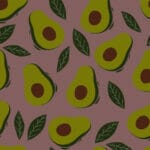Do Vegans Need to Take Vitamin B12?
Vitamin B12 is a crucial nutrient for many critical functions in the body including nerve and red blood function. Deficiency can lead to neurological difficulties and anaemia. Being a member of the B vitamin family, B12 is water-soluble but unlike other B vitamins, a certain amount of B12 can be stored in the liver for up to four years. Our main vitamin B12 source is certain foods including eggs and red meat, but in vegetarian and certainly vegan diets, these foods are absent or not always consumed regularly. So does this put vegans and vegetarians at greater risk of vitamin B12 deficiency?
As a Functional Medicine practitioner, I’ve heard many stories including “You can get enough B12 from the soil on your vegetables if you don’t wash them” or “You don’t need to supplement with Vitamin B12 as you can get enough through the bacteria in your mouth!” But what is the truth around the intake of this critical B vitamin if your diet does not contain naturally high levels of B12 in the first place?
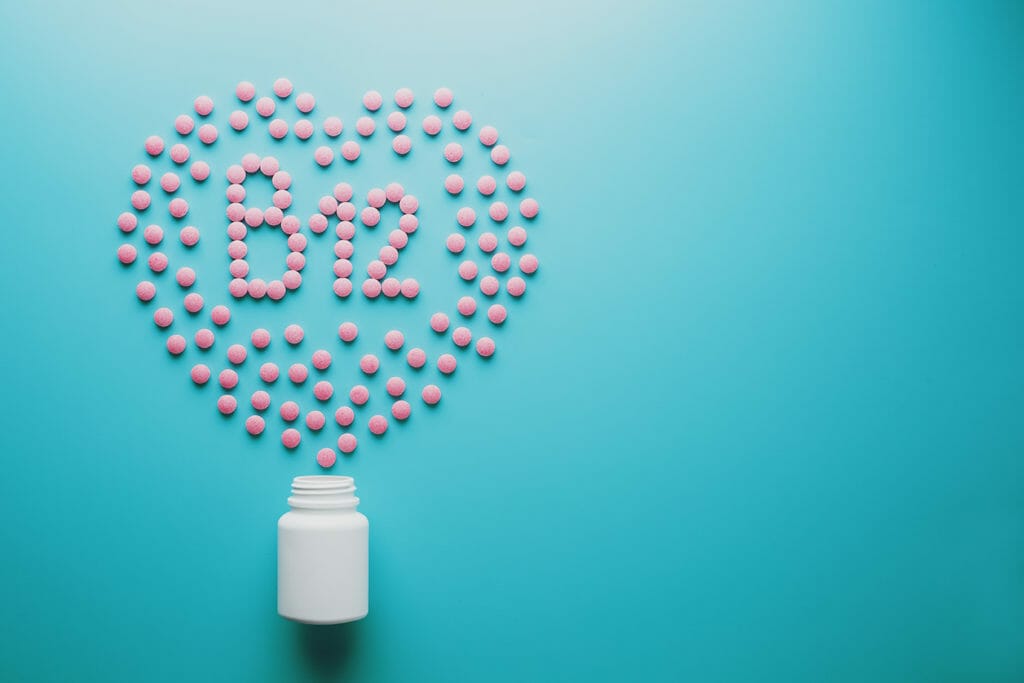
Why vitamin B12?
Vitamin B12 is a crucial vitamin required for many areas of health including the production of energy, metabolism, red blood cell formation, neurological function, DNA synthesis and maintaining healthy homocysteine levels via the methylation cycle. As this vitamin is stored in the liver any symptoms from chronic deficient intake, such as from chronically low dietary intake, can take up to five years to manifest depending on the original storage level.
Vitamin B12 contains the mineral cobalt and exists in several forms called “-cobalamins”. Methylcobalamin and adenosylcobalamin are two natural forms that are bioactive in human metabolism. The other inactive forms are hydroxocobalamin and cyanocobalamin that must be metabolised into the two active forms to be used in human cells.
Vitamin B12 absorption
Vitamin B12 digestion and absorption is a complex process and requires the adequate synthesis of gastric (hydrochloric) acid, intrinsic factor (a glycoprotein secreted in the stomach) and proteases (enzymes that break down proteins and peptides). Simply put, B12 is digested from its protein carrier in food by the pepsin enzyme secreted in the stomach (which requires adequate levels of gastric acid) and then binds to intrinsic factor for absorption into the body through the small intestine.

Vitamin B12 deficiency
Pernicious anaemia (a type of autoimmune disease) affects the gastric mucosa, leading to the destruction of specialised cells in the stomach (parietal cells) and failure to produce sufficient intrinsic factor, resulting in Vitamin B12 malabsorption and eventually deficiency.
Older adults, who often suffer from decreased gastric acid production, and individuals with gastrointestinal disorders may also have compromised absorption of B12, as well as people who rely on Proton Pump Inhibitors (PPIs) and antacid medication for long-term acid reflux.
Vitamin B12 deficiency may be characterised by:
• Fatigue, weakness
• Constipation
• Loss of appetite and weight loss
• Soreness of the mouth or tongue
• Neurological conditions, such as numbness and tingling of the hands and feet
• Difficulty with balance
• Depression
• Confusion
• Poor memory and dementia (e.g. Alzheimer’s disease)
• Low bone mineral density
• Megaloblastic anaemia (i.e. formation of large and structurally abnormal red blood cells)
However, neurological symptoms can occur without the presence of anaemia, so early detection of vitamin B12 deficiency is important to avoid irreversible nerve damage. Deficiency is also commonly misdiagnosed because symptoms can mimic other conditions. Many people with a low intake of B12 also show the restricted activity of B12-related enzymes, leading to elevated homocysteine levels, which have been linked to increased risk of heart disease and stroke.
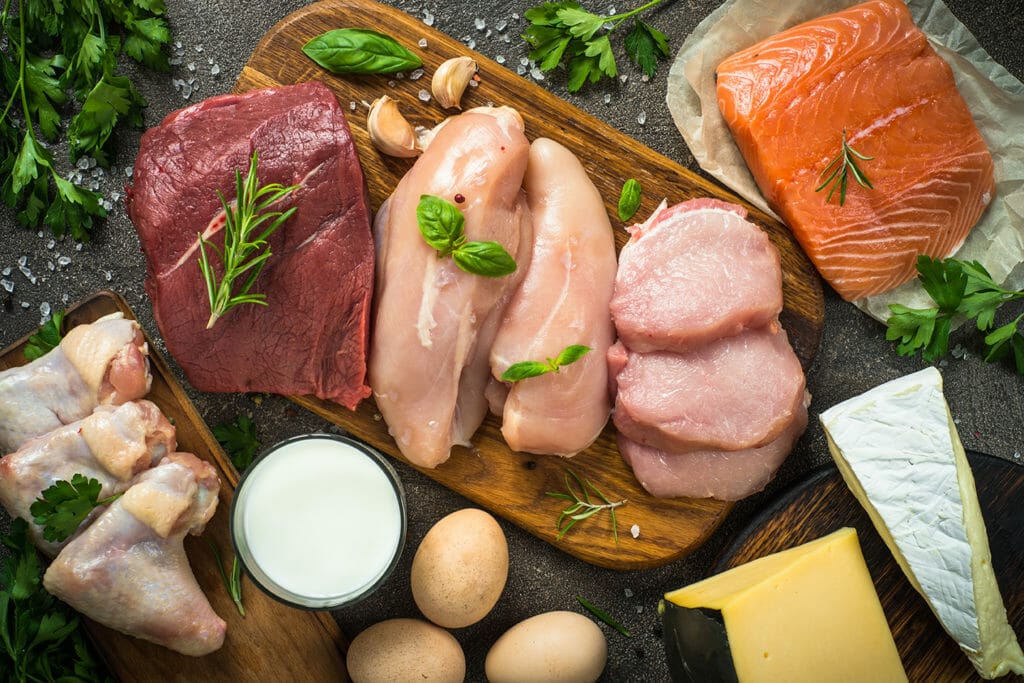
Dietary sources of Vitamin B12
Animal sources including fish, meat, poultry, eggs, milk, and milk products contain the highest levels of vitamin B12 – because animals have a requirement for this vitamin. Eating these foods means by default we consume the vitamin B12 these animals contain. Though some bacteria our small intestines also produce B12, it’s unlikely to be enough to maintain adequate status.
According to Jack Norris, RD, a vegan expert and co-author of Vegan for Life: Everything You Need to Know to Be Healthy and Fit on a Plant-Based Diet, there are “no reliable sources of B12 in plants”, contrary to many rumours about sources such as tempeh, seaweeds, and organic produce.
Plants have no B12 requirement; therefore, they don’t have any active mechanisms to make or store it. When you find B12 in plants, it’s due to contamination and so isn’t a reliable source.”
Many types of seaweed have B12 analogues through their symbiotic relationship with cobalamin-producing bacteria; however, the evidence isn’t clear that this form is active B12 in humans. And fermented foods, such as tempeh, aren’t fermented through B12-producing bacteria so aren’t a reliable source of B12.
Rumours about bacteria on the surface of organic produce producing B12 haven’t been verified. “Chlorella may improve B12 status, but it’s by such a small amount that I wouldn’t rely on chlorella for B12,” Norris adds. “So that’s not to say that these food sources are not worth taking. On the contrary, spirulina, chlorella, seaweed and tempeh contain many other nutritional benefits to enjoy; it’s just they aren’t a reliable source of Vitamin B12.”
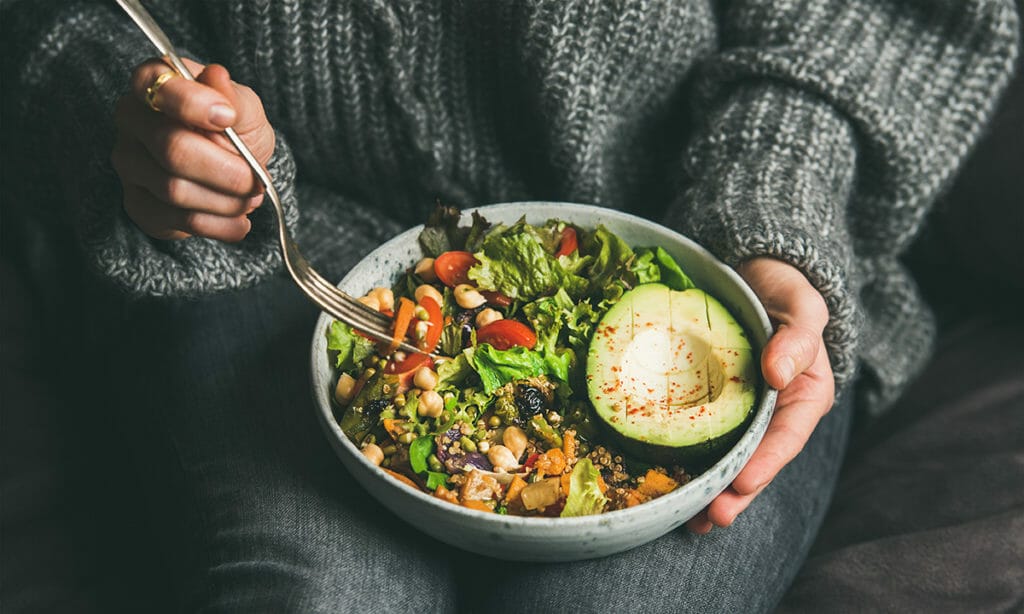
Should vegans supplement with vitamin B12?
This means that some vegetarians – and especially vegans – are at risk of vitamin B12 deficiency, which may take years to manifest as storage levels decline. In fact, there’s a high prevalence of low serum vitamin B12 among vegetarians, in particular vegans, where prevalence ranges at levels between 43% and 88%.
In a recent review paper of the National Diet and Nutrition Surveys in the BMJ, the researchers found that 11% of vegan women of childbearing age that were surveyed were clinically deficient in B12.
Going back as far as 1955, studies have shown that vegans have experienced Vitamin B12 deficiency. In addition, B12 crosses the placenta during pregnancy and is present in breast milk, thus, if the mother doesn’t receive adequate B12 intake, infants may suffer from B12 deficiency, which can lead to severe, permanent neurological damage.
But, if the National Diet and Nutrition Surveys suggest that 89% of vegans have B12 in the expected blood serum range then what’s the problem for the majority with reportedly okay levels? It all comes down to the detection range of the test, which is believed to be too narrow to pick up more subtle B12 deficiencies. Many people following a vegan or vegetarian diet that have not considered B12 support will have subclinical changes manifesting from dwindling B12 stores that may ultimately lead to long-term health consequences if not addressed.
But it’s not just vegetarians and vegans that are at risk of B12 deficiency. Studies have also found B12 deficiency in different populations including up to 90% of the elderly, 62% of pregnant women, 25%–86% of children, and 21%–41% of adolescents.
So what tests can be done to check B12 levels and should we be supplementing this precious vitamin?
B12 Recommendations
The RDA for B12 in adults is 2.4mcg per day, which assumes a 50% absorption rate from the amount ingested in foods. However, higher levels are often recommended to prevent potential deficiency symptoms in those following low B12 diets, ageing adults and those on medications like PPIs.
In fact, it’s suggested that adults supplement 10 to 50mcg Vitamin B12 additional to the daily diet and vegan adults 18 to 65 years old should consider a daily B12 food supplement boost of up to 100 to 1000mcg daily. The elderly can also supplement up to 1000mcg B12 daily. These higher recommendations than the existing RDA partly stem from the loss of B12 through food processing and pasteurisation, such as with most UK dairy products, and also that only around 50% B12 is absorbed through a healthy gut.
In food supplements, the lower daily doses are typically found in multivitamin and mineral formulations, as well as more concentrated B vitamin complexes and specialist homocysteine support supplements, with the 1000mcg doses of Vitamin B12 formulated as sublingual tablets designed for optimal absorption under the tongue, which bypasses the complex stomach digestion and absorption processes allowing for greater absorption.
In supplements, B12 is usually present as the inactive cyanocobalamin – a form the body then has to expend energy converting into the bioactive forms methylcobalamin and adenosylcobalamin. Taking food supplements already containing the bioactive forms can, therefore, support bioavailability (i.e. enhanced absorption) and bioactivity of this crucial vitamin.
B12 Testing
The status of B12 typically is assessed through serum or plasma B12 levels. Low values may indicate a deficiency but may also indicate low levels of Vitamin B6 and/or folate, as these vitamins work synergistically in the cell methylation cycle. Elevated serum homocysteine also indicates an imbalance in B vitamin and methylation cycle activity.
Organic acid urine tests can also detect Vitamin B12 deficiency. Methylmalonic acid (MMA) is a compound produced in very small amounts during amino acid metabolism. Increased production of MMA detected in the urine occurs in Vitamin B12 deficiency. This is because B12 acts as a coenzyme, promoting the conversion of methylmalonyl CoA to succinyl CoA.
Of course, you don’t need to get tested just because you’re vegan! If you have symptoms that indicate low B12 or feel dietary sources are low then checking levels can help indicate the need for higher levels of supplementation.
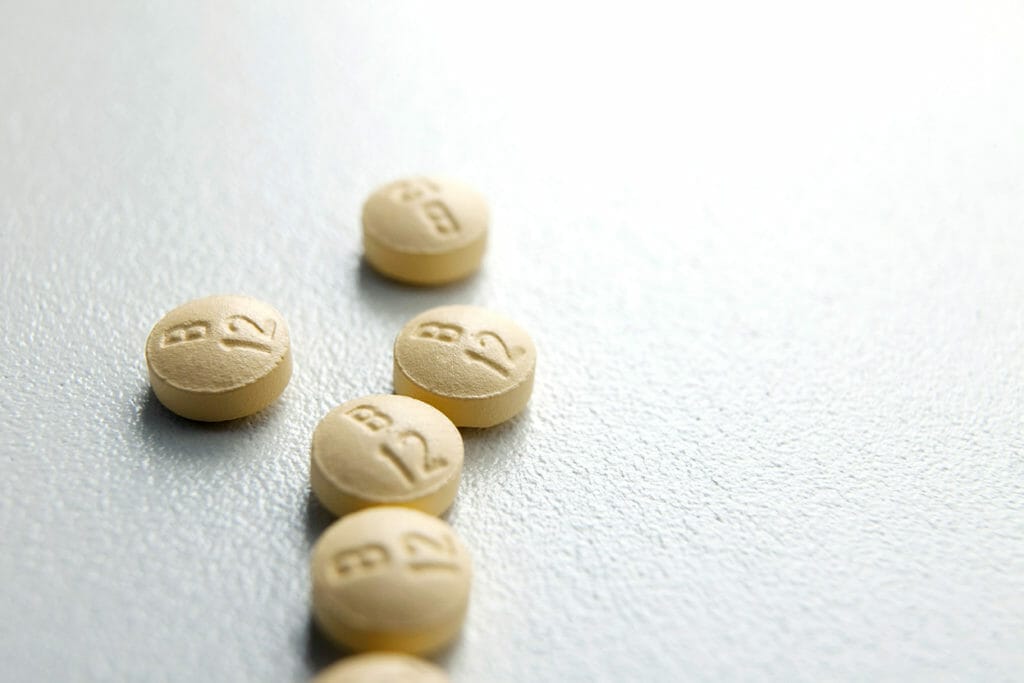
Clearing up the vitamin B12 confusion
We know that optimising vitamin B12 levels are crucial to maintaining long-term health. However, it’s not always possible to regularly eat or absorb the amount of vitamin B12 required. Age and dietary status are two of the main reasons for vitamin B12 deficiency, especially if the main sources of meat and dairy are not included for ethical/health/environmental reasons. Daily supplementation of up to 1000mcg sublingual (under the tongue) B12 with bioactive methylcobalamin and adenosylcobalamin forms is an effective way to support any deficit and prevent related health issues.

Dr Elisabeth Philipps PhD BSc (Hons) BSc Nutr Med AFMCP
Dr Elisabeth Philipps is a clinical neuroscientist and functional medicine practitioner, and runs a health consultancy specialising in brain health, the endocannabinoid system and phytocannabinoids including CBD. She regularly presents at conferences and events, and provides expert opinion for the national press, specialist healthcare publications and health companies. You can connect with Elisabeth via:
www.drelisabethphilipps.com | instagram – @drelisabethphilipps | Twitter – @drphilipps | Linked In – Dr Elisabeth Philipps
References:
Penninx BWet al (2000) Vitamin B(12) deficiency and depression in physically disabled older women: epidemiologic evidence from the Women’s Health and Aging Study. Am J Psychiatry. 2000 May;157(5):715-21
Tucker et al (2005) Low plasma vitamin B12 is associated with lower BMD: the Framingham Osteoporosis Study. J Bone Miner Res. 2005 Jan;20(1):152-8
Poole JF, Malinow MR, Chambless LE, Spence JD, Pettigrew LC, Howard VJ, Sides EG, Wang CH, Stampfer M. Lowering homocysteine in patients with ischemic stroke to prevent recurrent stroke, myocardial infarction, and death: the Vitamin Intervention for Stroke Prevention (VISP) randomized controlled trial. JAMA. 2004 Feb 4;291(5):565-75.
Lonn E, Yusuf S, Arnold MJ, Sheridan P, Pogue J, Micks M, McQueen MJ, Probstfield J, Fodor G, Held C, Genest J Jr; Heart Outcomes Prevention Evaluation (HOPE) 2 Investigators. Homocysteine lowering with folic acid and B vitamins in vascular disease. N Engl J Med. 2006 Apr 13;354(15):1567-77. Epub 2006 Mar 12.
Hooshmand B et al (2016) Association of Vitamin B12, Folate, and Sulfur Amino Acids With Brain Magnetic Resonance Imaging Measures in Older Adults: A Longitudinal Population-Based Study. JAMA Psychiatry Apr 27.
Morris MS et al (2014) Vitamin B-12 and folate status in relation to decline in scores on the mini-mental state examination in the framingham heart study. J Am Geriatr Soc 60(8):1457-64.
Toole JF et al (2004) Lowering homocysteine in patients with ischemic stroke to prevent recurrent stroke, myocardial infarction, and death: the Vitamin Intervention for Stroke Prevention (VISP) randomized controlled trial. JAMA 4;291(5):565-75.
Selhub J et al (2007) In vitamin B12 deficiency, higher serum folate is associated with increased total homocysteine and methylmalonic acid concentrations. Proc Natl Acad Sci USA 11;104(50):19995-20000
Wang ZP et al (2012) Low maternal vitamin B(12) is a risk factor for neural tube defects: a meta-analysis. J Matern Fetal Neonatal Med 25(4):389-94
Melina V, Craig W, Levin S. Position of the Academy of Nutrition and Dietetics: vegetarian diets. J Acad Nutr Diet. 2016;116(12):1970-1980
Wokes F, Badenoch J, Sinclair HM. Human dietary deficiency of vitamin B12. Am J Clin Nutr. 1955;3(5):375-382
Pawlak Ret al (2013) How prevalent is vitamin B(12) deficiency among vegetarians? Nutr Rev. 2013 Feb;71(2):110-7







